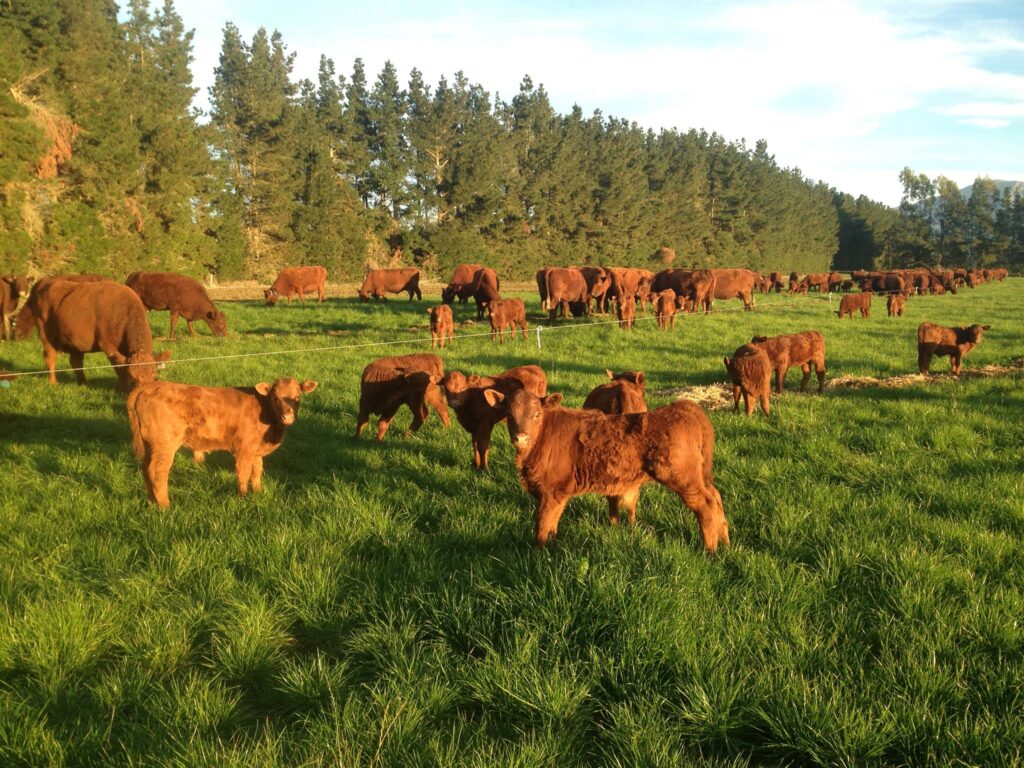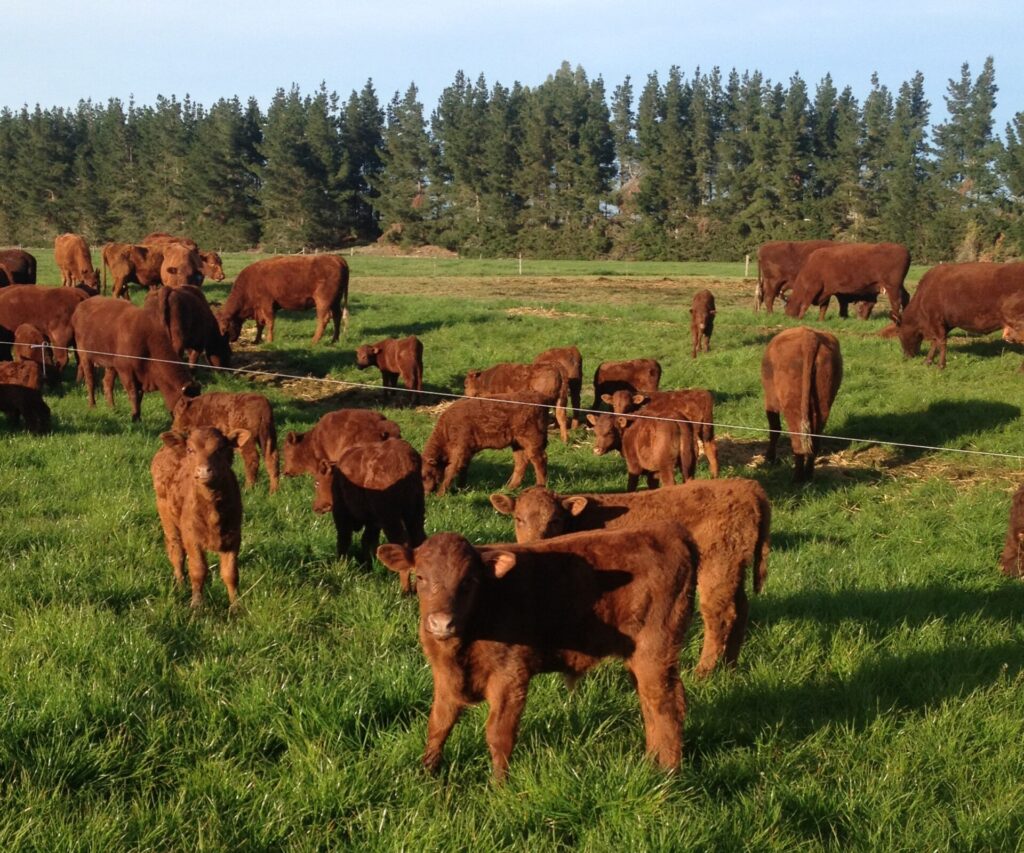
CALVING EASE
Red Devons have small vigorous calves, providing trouble free calving. Average birth weight of calves is 36 to 38kg. For this reason Red Devon bulls are a popular choice for farmers calving heifers, of all breeds, both beef and dairy. This means more live calves on the ground and fewer vet bills.
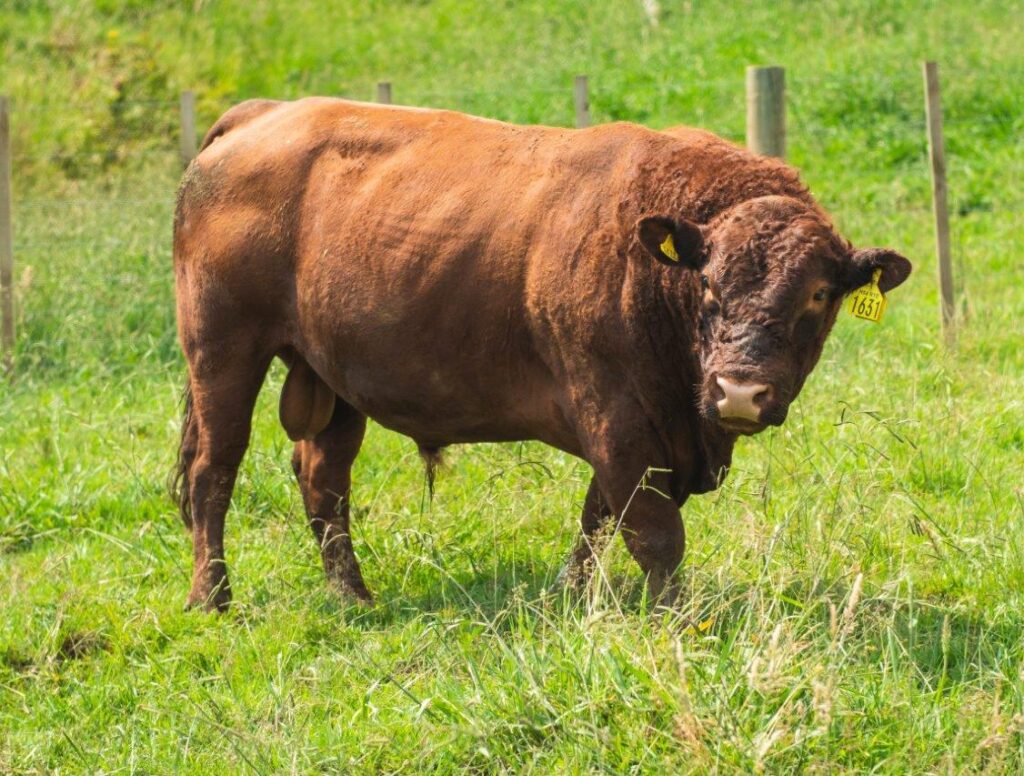
FERTILITY
Red Devons rank as one of the most fertile of all cattle breeds. Calving percentages of 96% and better can be expected on good nutrition. Heifers routinely show estrus by 300 days, will calve before two-year old and get back in calf in 45 days. A good bull will service 65-70 cows in a season and look like he never went out. Because of the constitution and the longevity of the breed, bulls have been known to be still working at the age of fourteen. This means more live calves, less empties, carryovers or culls, and lower bull replacement costs.
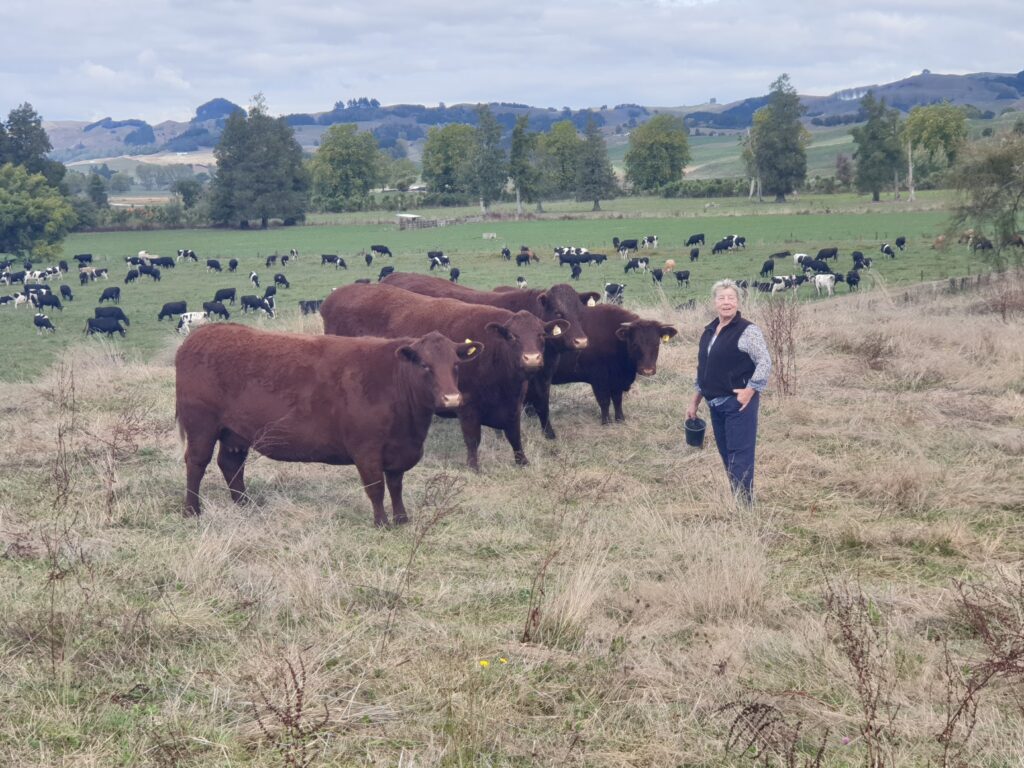
TEMPERAMENT
All breeders and stock truck drivers will testify to the docile temperament of the Red Devon breed. This is why lifestyle, small block and semi-retired farmers are especially attracted to the breed. Docility and intelligence, as well as muscling ability were basic requirements when they were used as draft animals. These traits are equally important in their role of producers of quality beef. The temperament definitely has a favourable effect on the pH of the animal at slaughter. Temperament is a highly heritable trait, so when a Red Devon is crossed with another breed, the resultant progeny will show a vast improvement in temperament. This means easy handling and less stress. Both bulls and cows are safe to work with meaning less maintenance costs on yards, farm gates, broken fences etc.

FORAGING
Red Devons are second-to-none when it comes to foraging and have been proven in trials to be extremely efficient converters of grass to beef. They are an ideal breed for the New Zealand all-pasture feed system. They are well suited to grazing New Zealand’s hill country, and have the ability to turn lower quality feed into quality meat and milk. By maintaining feed quality on steep country, they play a major role in profitability on these farms. Their low maintenance requirements make them easy cattle to over-winter, with minimal hay being supplemented at strategic times, such as through calving, to enable the feeding of magnesium oxide to guard against hypomagnesaemia. Because of their nature and medium size, pugging of the pasture is kept to a minimum during winter months. Red Devons are the ideal bred for organic farming properties, and in the United Kingdom are recognised as “the ideal conservation grazier”.
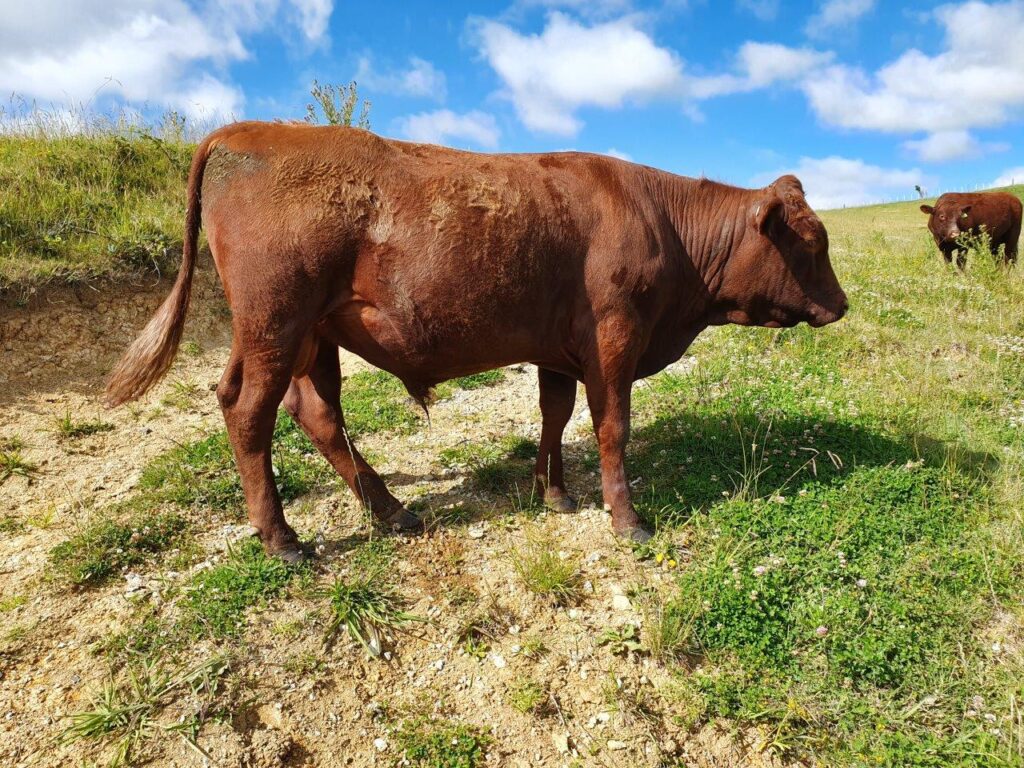
HARDINESS
Red Devons are a hardy breed with the thickest hides of any cattle in the world. Because of this they have better resistance to external parasites, and are well able to withstand extreme weather changes and extremes of temperature. Their robust constitution enables them to flourish in many different environments. They are just as at home in the cold, wet conditions of Exmoor, in the heat of Brazil; or the dry and arid conditions of inland Queensland. Their red coat colour helps to protect them against the sun, and red eye pigment helps to prevent cancer eye, an increasing problem for many breeds. They are also well known as one of the Bos taurus breeds with the greatest tolerance to bloat. This means healthier, tougher, more profitable cattle.
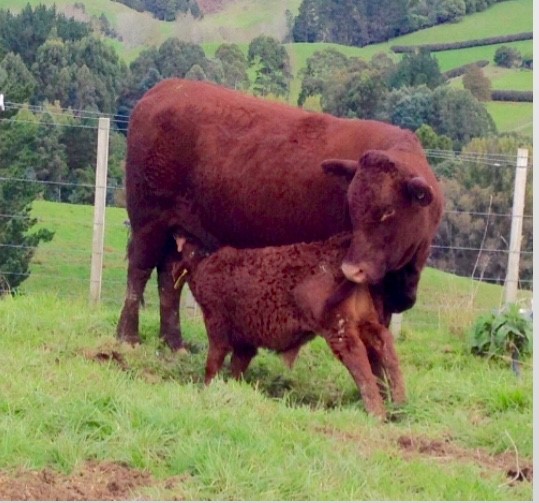
MOTHERING-MILKING ABILITY
Red Devon cows have excellent mothering ability, compact problem free udders and calves have one of the highest survival rates to weaning. They are renowned for high milk production resulting in heavy calves at weaning. Bull calves average 1.2 kilograms per day from birth to weaning and heifers 1 kilogram. Red Devon cows are capable of weaning calves at half their own body weight and still being in fat condition, can be wintered below maintenance feed levels until a few weeks before calving again. In other words using the body condition gained in times of plenty to survive the winter period. An easy care system.
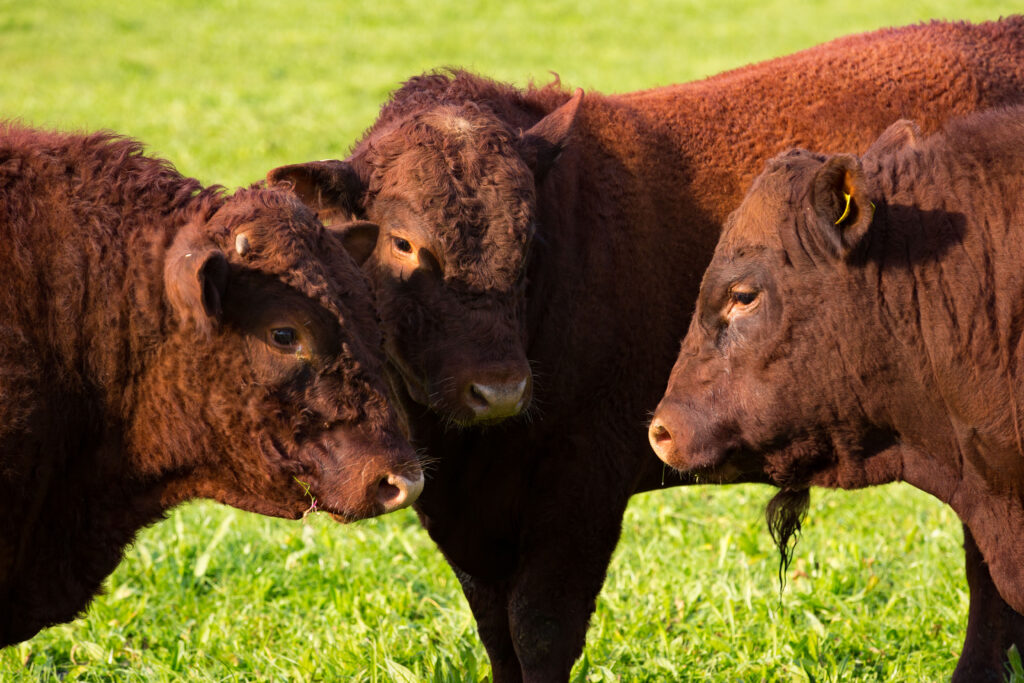
MATURITY AND WEIGHT GAIN
Red Devons are an early maturing breed. They combine rapid weight gain as well as adequate muscle and carcass characteristics, with the ability to fatten at an early age. They really are “One Winter Cattle” and will normally yield around +60%.
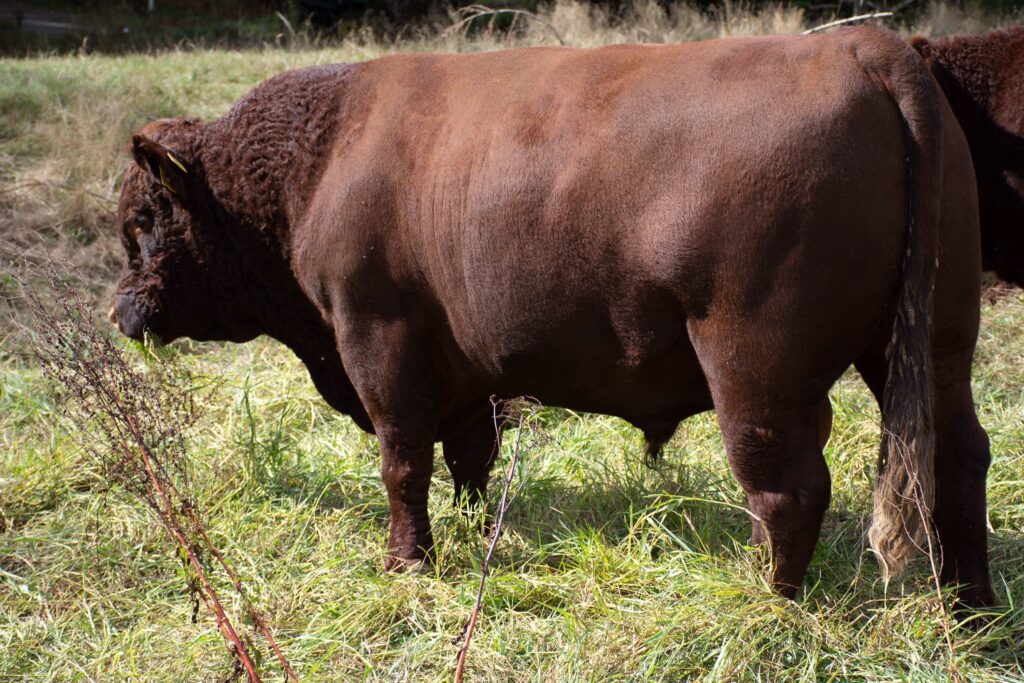
CARCASS QUALITY
Red Devon beef is well recognised and of the finest eating quality, with whiteness of fat and excellent marbling. This is gourmet beef on grass.
Raising cattle on pasture adds an immense amount of flavour to beef and the natural docility of the Devon breed lends to a pleasant texture and tenderness. Stress levels increase the cortisol levels in the blood and work against the agents that create tender beef. Docile Red Devons – fewer “dark cutters” and lower pH levels.
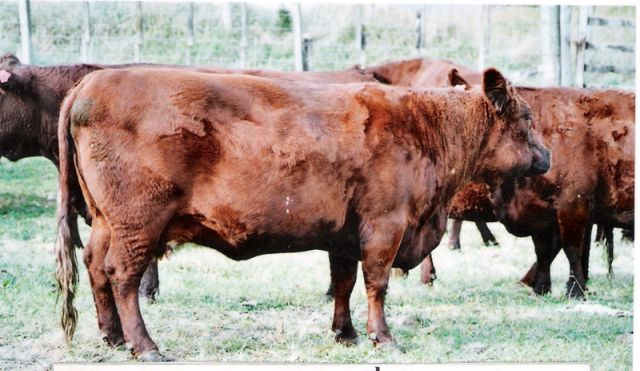
LONGEVITY
The cow pictured (Matahaia Tammy 3rd) at 20 years, after successfully rearing 18 calves. Because Red Devons have such a robust constitution, are structurally sound with correct udders and free from diseases such as cancer eye, this means they can be retained in the herd for more years than most other breeds. Cows are quite capable of producing and rearing ten or more calves in a lifetime. Cows in the herd are normally culled for age about fourteen years, with some of the top animals kept on longer. This makes the breed an economical one, with a low replacement rate.
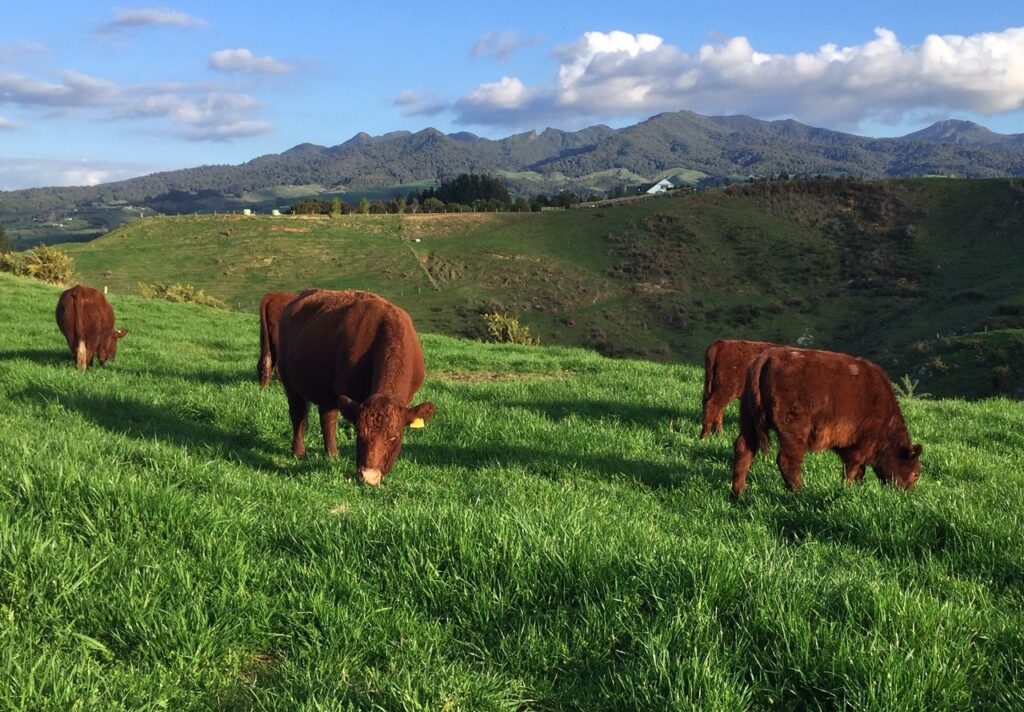
GENETIC INTEGRITY
The fortunes of the Devon breed are linked to the fact that they have never been the “flavour of the month” and have therefore never had the pressure to conform to the factory type production system. They have not been influenced by other breeds, or the introduction of American genetics as many other breeds were in past years. This means that they have not lost their genetic ability to perform wherever they have had to. It is these traits now that are being so sought after. No breed has a purer genetic base than the Devon and breeders will continue to ensure the genetic integrity and stability of the breed. The hybrid vigour noticeable in your calves is a direct result, of the purity of the Red Devon bulls used over your herd.

